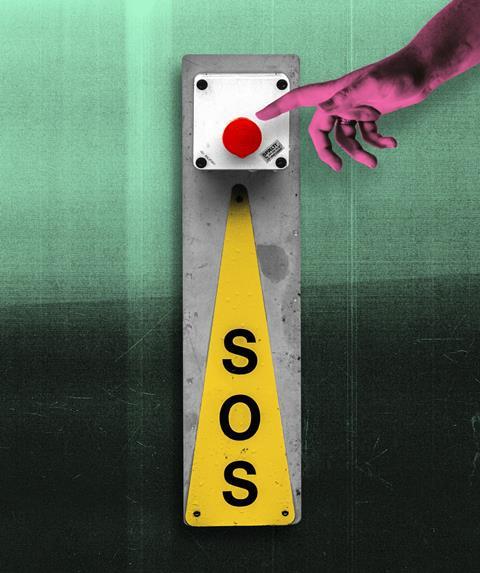Mark Oestreicher has learned to abandon his ‘self sufficiency’ and found that involving others works better for him, and them

We are groomed, over years, to believe that asking for help is a sign of weakness. A bigger lie: we are groomed, over years, to believe that asking for help will push people away from us. And while we often don’t live on that plane of emotion, our deeper needs of connection and relationship drive us to this (counterproductive) ‘I can do it by myself’ approach.
Here are two counterintuitive truths:
- Asking for help is a sign of a strong, self-aware leader with a high level of personal awareness.
- When a competent person asks for help, she draws people to her, emotionally, rather than driving them away.
These themes are central to the year-long coaching programme I run for ministry leaders. It’s not uncommon to have a participant unwilling to connect with these realities. In one cohort, a guy made a presentation as part of an element designed to get input from the group. He talked all about his great success and all the amazing things he was doing. When he stopped talking, I asked: “What do you need from us?” He was lost, and uncomfortably said: “I don’t think I need anything.” But that was counter to the entire focus of the programme, and he didn’t return for our second meeting.
These are truths I had to learn myself, over time, through trial and error. Leadership teams I’ve been a part of began to hum as we got truly honest with each other and relied on each other at both personal and vocational levels. I found that people I was leading withdrew from me when I presented an ‘I’ve got it all together’ vibe, but were drawn together (and to me) when I was fully, uncomfortably honest.
“Asking for help is a sign of a strong, self-aware leader”
Recently a friend sent me a message: “New learning: asking for help is hard, but so much better than going it alone.”
This was from a strong leader, an extremely gifted man. And he’s experiencing a breakthrough into a new level of growth and wholeness that will cause, I believe, his future leadership to far surpass the successes he’s experienced to this point in life.
All of this was floating in the back of my mind somewhere when I had coffee with a local ministry leader. We made small talk for a while (you know, ‘ministry small talk’). Then he started into an ask something along the lines of: “I’d like to figure out how we can help each other. I’m not sure what that looks like, but if we could start meeting regularly, I think we could provide things for each other that would grow both of our ministries.”
Suspicious, I asked: “Like, what kinds of things?” He went on to try to talk about iron sharpening iron and stuff like that. But it was clear to me that he wanted help and wasn’t comfortable asking for it. So, he had to pose it as a mutually beneficial thing.
I went into coaching mode, figuring some honesty and coaching might be more helpful to him than me just blowing him off, or agreeing to something I wasn’t going to follow through on. I asked his permission to speak bluntly. With his consent, I said: “The things you’re suggesting you can help me with aren’t things I’m asking you to help me with. And they’re all things for which I have people who provide that help. What I think you’re trying to ask is if I would be willing to help you. And here’s the reality that could be a learning moment for you: when you pose the question laden with soft ideas about how it would be mutual, you drive me away, because I’m not asking for help. But if you just come out and ask for help, I’ll be drawn to you – both emotionally and as a fellow ministry leader. Don’t try to manipulate me by offering help only to get it. Just be honest and ask for what you need.”
Since then, he has written me a few emails, clearly rearticulating his ask. And I’m quite sure I will do what I can to meet with him and help him. And it’s very possible that will shift, over time, to a friendship that offers something to me also. It’s possible that I will have requests of him at some point, even.
Knowing when you need help, clearly articulating it and asking is strong leadership, not weakness.

































